|
Books Should Be Free Loyal Books Free Public Domain Audiobooks & eBook Downloads |
|
|
Books Should Be Free Loyal Books Free Public Domain Audiobooks & eBook Downloads |
|
Top Authors |
|---|
|
Book type:
Sort by:
|
By: Clara Reeve (1729-1807) | |
|---|---|
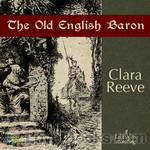 The Old English Baron
The Old English Baron
The story follows the adventures of Sir Philip Harclay, who returns to medieval England to find that the castle seat and estate of his friend Lord Lovel have been usurped. A series of revelations, horrors and betrayals climax in a scene of single combat in which good battles evil for the return of the prize. | |
By: Doris Stevens (1892-1963) | |
|---|---|
 Jailed for Freedom
Jailed for Freedom
A first-hand account of the 1913-1919 campaign of American suffragists, detailing their treatment at the hands of the courts, and the true conditions of their incarceration. | |
By: Elsie Spicer Eells | |
|---|---|
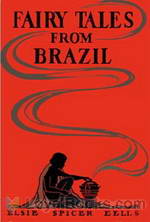 Fairy Tales from Brazil
Fairy Tales from Brazil
This book, subtitled "How and Why Tales from Brazilian Folk-Lore", is a collection of short stories, most of them etiologial myths from Brazilian Indian Folklore. | |
By: Robert Tressell | |
|---|---|
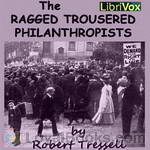 The Ragged Trousered Philanthropists
The Ragged Trousered Philanthropists
Clearly frustrated at the refusal of his contemporaries to recognise the iniquity of society, Tressell’s cast of hypocritical Christians, exploitative capitalists and corrupt councillors provide a backdrop for his main target — the workers who think that a better life is “not for the likes of them”. Hence the title of the book; Tressell paints the workers as “philanthropists” who throw themselves into back-breaking work for poverty wages in order to generate profit for their masters... | |
By: Charles W. Diffin (1884-1966) | |
|---|---|
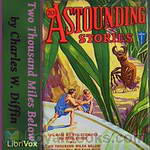 Two Thousand Miles Below
Two Thousand Miles Below
A science fiction novel that was originally produced in four parts in the publication: Astounding Stories in June, September, November 1932, January 1933. The main character is Dean Rawson, who plans on discovering a way of mining power from a dead volcano, but ends up discovering more than he bargained for. | |
By: Clara Barton (1821-1912) | |
|---|---|
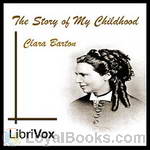 The Story of My Childhood
The Story of My Childhood
Clara Barton, founder of the American Red Cross, recalls growing up in early 19th Century Massachusetts. (Introduction by Veronica Jenkins) | |
By: Andrew Jackson | |
|---|---|
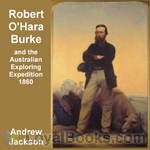 Robert O'Hara Burke
Robert O'Hara Burke
A non-fictional account of Burke and Wills’s 1860 expedition to cross the Australian continent from south to north and then return. Containing many excerpts from the diaries and accounts of the explorers, this book was published the year after the expedition met its disastrous end.(description written by trioptimum) | |
By: Edwin E. Slosson (1865-1929) | |
|---|---|
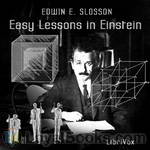 Easy Lessons in Einstein
Easy Lessons in Einstein
Published in 1920, Slosson’s Easy Lessons in Einstein is one of the first popularizations of Einstein’s theory of relativity. This book is meant to convey to the general reader the ideas of relativity in non-mathematical terms, by the use of thought experiements and pop-cultural references of the day. This edition also includes a short article by Einstein on Time, Space and Gravitation. | |
 Creative Chemistry
Creative Chemistry
Slosson reviews the transformation of alchemistry from an obscure and imprecise practice to the science of chemistry. Along the way, he explains how the modern industrial world now relies on fertilizers, explosives, textile materials, polymers and metals.By exploring the properties of a once undervalued element, the high strength of vanadium steel made the Ford car possible. Another element, cerium, appears in butane lighters and was once seen as a threat to the match industry in France.In his chapter on oils, Slosson reviews the development of hydrogenated oils, especially during WWII, in the search for a way to reuse otherwise discarded components of corn and cottonseed... | |
By: George Müller (1805-1898) | |
|---|---|
 Answers to Prayer, from George Müller's Narratives
Answers to Prayer, from George Müller's Narratives
Mr. Brooks, in this compilation, has endeavored to select those incidents and practical remarks from Mr. Müller's Narratives, that show in an unmistakeable way, both to believers and unbelievers, the secret of believing prayer, the manifest hand of a living God, and His unfailing response, in His own time and way, to every petition which is according to His will. (From the Preface) | |
By: Miles Franklin | |
|---|---|
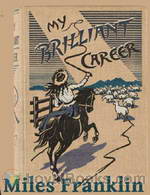 My Brilliant Career
My Brilliant Career
Sybella “There is no plot in this story, because there has been none in my life or in any other life which has come under my notice. I am one of a class, the individuals of which have no time for plots in their life, but have all they can do to get their work done without indulging in such a luxury”. Like the author Miles Franklin, Sybella grows up in the bush, and as her family’s fortunes decline, so her feelings rise that life should hold more for her than the relentless hard physical work farming marginal land in times of drought. | |
By: Bahá'u'lláh | |
|---|---|
 The Arabic Hidden Words
The Arabic Hidden Words
Kalimát-i-Maknúnih or The Hidden Words is a book written in Baghdad around 1857 by Bahá'u'lláh, the founder of the Bahá'í Faith. This work is written partly in Arabic and partly in Persian. The Hidden Words is written in the form of a collection of short utterances, 71 in Arabic and 82 in Persian, in which Bahá'u'lláh claims to have taken the basic essence of certain spiritual truths and written them in brief form. Bahá'ís are advised by `Abdu'l-Bahá, the son of Bahá'u'lláh to read them every day and every night and to implement its latent wisdom into their daily lives... | |
By: Robert C. Leslie (1826-1901) | |
|---|---|
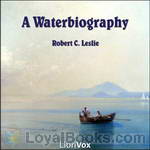 A Waterbiography
A Waterbiography
Robert C. Leslie (1826-1901) was an artist and writer who, at an early age fell in love with the sea, the sea of Sail, not of Steam. He describes the progression of this love from wave to wave and boat to boat. Leslie sailed during the Great Age of Sail before Industrialism had taken possession of Britain. Leslie comments on the early days of singlehanded small boat sailing: “When I first began boating in the early forties[1840s], what is now called single-handed cruising was almost unknown among amateurs…... | |
By: William Sangster (1808-1888) | |
|---|---|
 Umbrellas and Their History
Umbrellas and Their History
A whimsically serious look at the umbrella and society. | |
By: Joseph Lister (1827-1912) | |
|---|---|
 On the Antiseptic Principle of the Practice of Surgery
On the Antiseptic Principle of the Practice of Surgery
Joseph Lister was born near London in 1827. He studied medicine at the University of London and pursued a career as a surgeon in Scotland. He became professor of Surgery in Glasgow and later (1877) at Kings College Hospital, in London. Lister’s contribution to the advancement of surgery cannot be overestimated. Before his work on antisepsis, wounds were often left open to heal, leading to long recoveries, unsightly scarring, and not infrequently amputation or death due to infection. Lister’s work enabled more wounds to be closed primarily with sutures, drastically reducing healing time, scarring, amputations, and deaths due to infection... | |
By: Maria Susanna Cummins (1827-1866) | |
|---|---|
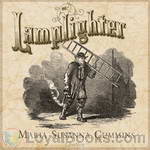 The Lamplighter
The Lamplighter
Gertrude began life as an abused child in the care of Nan Grant, a cold and cruel woman. The only human character who was kind to her was the lamplighter, Truman Flint. When Nan, in one of her tantrums, threw Gertrude away from her house, he took her into his care. A few unforgettable people taught Gertrude everything that a young lady has to know. Almost everybody loves and admires Gertrude. But the one she loved best is Willie Sullivan. Will this love stay strong even after 6 years of separation? And will Gertrude, so admired and loved as she is, be happy - once in her life - for herself and not for others? | |
By: Sir Percy Fitzpatrick (1862-1931) | |
|---|---|
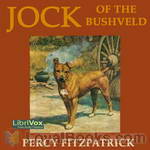 Jock of the Bushveld
Jock of the Bushveld
Jock of the Bushveld is a true story by South African author Sir Percy Fitzpatrick when he worked as a storeman, prospector's assistant, journalist and ox-wagon transport-rider. The book tells of Fitzpatrick's travels with his dog, Jock, during the 1880s. Jock was saved by Fitzpatrick from being drowned in a bucket for being the runt of the litter. Jock was very loyal towards Percy, and brave. Jock was an English Staffordshire Bull Terrier. | |
By: Bob Brown (1886-1959) | |
|---|---|
 The Complete Book of Cheese
The Complete Book of Cheese
This recording was released to coincide with National Cheese Lovers’ Day 2010 in the United States. Robert Carlton Brown (1886 – 1959), after living thirty years in as many foreign lands and enjoying countless national cheeses at the source, returned to New York and summed them all up in this book. After majoring in beer and free lunch from Milwaukee to Munich, Bob celebrated the end of Prohibition with a book called Let There Be Beer! and then decided to write another about Beer’s best friend, Cheese... | |
By: John Dos Passos (1896-1970) | |
|---|---|
 Three Soldiers
Three Soldiers
Three Soldiers, the second novel by John Dos Passos, follows the experiences of several young Americans thrown into the confusion and brutality of World War I.Written when the author was just twenty-three, it was key to the development of a realistic depiction of war in American literature, and earned Dos Passos, later named by Jean-Paul Sartre "the greatest living writer of our time", important early attention.Critic H L Menken said of it: "no war story can be written in the United States without challenging comparison with it--and no story that is less meticulously true will stand up to it... | |
By: Frederick G. Aflalo (1870-1918) | |
|---|---|
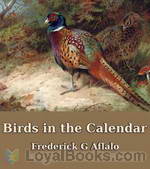 Birds in the Calendar
Birds in the Calendar
Delightful sketches of British wild birds – a bird for every month of the year from the pheasant in January to the robin in December. This collection of articles, reprinted in book form from the periodical The Outlook, is full of fascinating information about bird behaviour and habitat, as well as many interesting anecdotes. Out of date in some respects, particularly in its reference to the (now illegal) collecting of birds’ eggs, this book brings home forcefully how the populations of some British wild birds have declined since it was written. | |
By: Ralph Connor | |
|---|---|
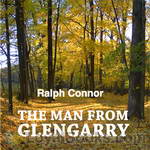 The Man from Glengarry
The Man from Glengarry
With international book sales in the millions, Ralph Connor was the best-known Canadian novelist of the first two decades of the Twentieth Century. The Man from Glengarry was his most popular and accomplished work. Immediately after its publication in 1901, the novel spent several months in the top ranks of the New York Times "Books in Demand" list.We follow the story of Ranald Macdonald, who is shaped by family and community in rural eastern Ontario in the early decades after Canadian confederation... | |
 Glengarry School Days
Glengarry School Days
With international book sales in the millions, Ralph Connor was the best-known Canadian novelist of the first two decades of the Twentieth Century. Glengarry School Days (1902), hugely popular in its time, is based on his memories of growing up in rural Ontario around the time of Canadian confederation. Although Connor saw himself as writing moral fiction for adults, generations of younger readers have also enjoyed these affectionate and gently amusing sketches, and excerpts from Glengarry School Days have appeared in school anthologies. | |
By: Geronimo (1829-1909) | |
|---|---|
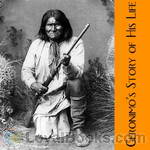 Geronimo’s Story of His Life
Geronimo’s Story of His Life
Geronimo’s Story of His Life is the oral life history of a legendary Apache warrior. Composed in 1905, while Geronimo was being held as a U.S. prisoner of war at Fort Sill, Oklahoma, Geronimo’s story found audience and publication through the efforts of S. M. Barrett--Lawton, Oklahoma, Superintendent of Education, who wrote in his preface that “the initial idea of the compilation of this work was . . . to extend to Geronimo as a prisoner of war the courtesy due any captive, i.e. the right to state the causes which impelled him in his opposition to our civilization and laws... | |
By: Joseph Lievesley Beeston | |
|---|---|
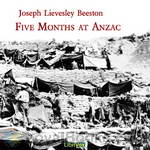 Five Months at Anzac
Five Months at Anzac
A Narrative of Personal Experiences of the Officer Commanding the 4th Field Ambulance, Australian Imperial Force from his leaving Australia December 1914 till his evacuation due to illness after 5 months at Gallipoli. Read to remember those who were there. (Introduction by Annise) | |
By: Mary Kennedy Core | |
|---|---|
 The Khaki Kook Book
The Khaki Kook Book
We cannot ignore the fact that we must eat, and that much as we dislike to acknowledge it, we are compelled to think a great deal about filling our stomachs. This is especially true these days, when prices have soared and soared and taken along with them, far out of the reach of many of us, certain articles of food which we heretofore have always felt were quite necessary to us. About ten years ago the idea of writing a little cook book had its birth. We were in Almora that summer. Almora is a station far up in the Himalayas, a clean little bazaar nestles at the foot of enclosing mountains... | |
By: Louis D. Brandeis (1856-1941) | |
|---|---|
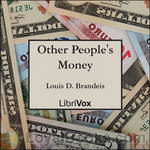 Other People's Money
Other People's Money
Other People's Money and How the Bankers Use It is a collection of essays written by Louis Brandeis published as a book in 1914. The book attacked the use of investment funds to promote the consolidation of various industries under the control of a small number of corporations, which Brandeis alleged were working in concert to prevent competition. Brandeis harshly criticized investment bankers who controlled large amounts of money deposited in their banks by middle-class people. The heads of these... | |
By: Charles Willing Beale (1845-1932) | |
|---|---|
 The Ghost of Guir House
The Ghost of Guir House
Do you think you understand ghosts? Now you will.Paul Henley, seemingly summoned to a mysterious rural Virginia mansion from his home in New York, finds himself as a guest at a remote, dilapidated colonial house with a host and a hostess every bit as mysterious as the house itself. Might Dorothy, his hostess, somehow be implicated in the hideous crime which he came to know took place in the hidden depths of Guir House some years ago? He hardly thought so, she seemed so innocent. And yet .... (Introduction by Roger Melin) | |
By: Romesh C Dutt | |
|---|---|
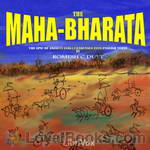 The Mahabharata by Vyasa: the epic of ancient India condensed into English verse
The Mahabharata by Vyasa: the epic of ancient India condensed into English verse
The Mahabharata is one of the two major Sanskrit epics of ancient India. Traditionally, the authorship of the Mahabharata is attributed to Vyasa. With more than 74,000 verses, Mahabharata is said to be the longest poem. Mahabharata tells the story of the epic Kurukshetra War and the fates of the cousin brothers Kauravas and the Pandavas. But more than that the Mahabharata contains much philosophical and devotional material, such as a discussion of the four "goals of life" or 'purusharthas'. The latter are enumerated as dharma (right action), artha (purpose), kama (pleasure), and moksha (liberation). (Introduction by om123) | |
By: Ferrar Fenton (1832-1920) | |
|---|---|
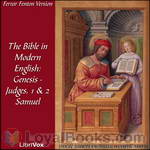 The Bible in Modern English: Genesis - Judges, 1 & 2 Samuel
The Bible in Modern English: Genesis - Judges, 1 & 2 Samuel
Work on the translation began in 1853 by a London businessman called Ferrar Fenton (1832–1920). The complete Bible was first published in 1903, though parts were published as separate volumes during the preceding 11 years. The translation is noted for a rearranging of the books of the Bible into what the author believed was the correct chronological order. In the Old Testament, this order follows that of the Hebrew Bible. The name of God was translated throughout the Old Testament as "The Ever-Living"... | |
 The Bible in Modern English, NT: John, 1John, Matthew, Mark
The Bible in Modern English, NT: John, 1John, Matthew, Mark
The ordering novelty in the New Testament is that it places the Gospel of John and the First Epistle of John at the beginning before the Gospel of Matthew, thus placing the Acts of the Apostles immediately after the Gospel of Luke. Work on the translation began in 1853 by a London businessman called Ferrar Fenton (1832–1920). The complete Bible was first published in 1903, though parts were published as separate volumes during the preceding 11 years. The translation is noted for a rearranging of the books of the Bible into what the author believed was the correct chronological order. His translation of the New Testament is based on the Greek text of Westcott and Hort. | |
By: Albert Kinross (1870-1929) | |
|---|---|
 The Fearsome Island
The Fearsome Island
No ordinary sailor's tale, this. Based allegedly on the real experiences of Silas Fordred, Master Mariner of Hythe, this is a story of shipwreck on an uncharted island and his supernatural adventures there with a witch, a hairy man, and various devilish devices and traps. The author, Kinross, adds an appendix purporting to explain the marvels which Fordred encountered.Kinross claims to have stolen the sailor's original account from Hythe Town Hall while helping the Town Clerk to sort newly discovered old papers... | |
By: Karl Wilson Gehrkens (1882-1975) | |
|---|---|
 Music Notation and Terminology
Music Notation and Terminology
Until relatively recently, music students at all levels of study—from the conservatories to public schools—had few resources available for the formal study of musical notation and terminology in the classroom. In fact, it was not until 1914, when Professor Karl Gehrkens at the Oberlin School of Music published this compilation of class notes and sources he collected over the years, that a uniform text became available for schools and universities everywhere. Since the publication of this monumental work, similar textbooks have emerged, but Dr... | |